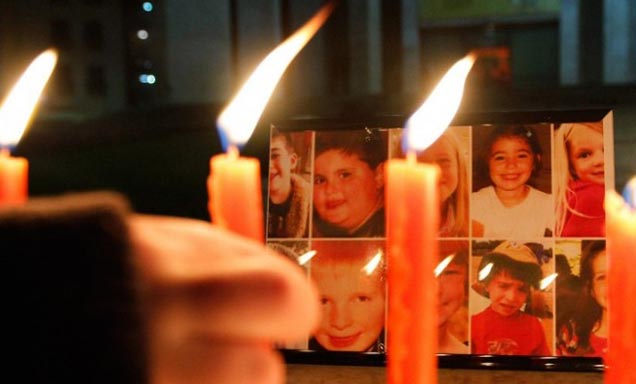 Washington:
Washington: The survivors of a gun rampage in Tucson came to Washington in August with a simple message for the Obama administration: Do something — anything — to stop the violence.
One was a nurse shopping for Brussels sprouts who rushed to do triage after then-Rep. Gabrielle Giffords (D) was shot outside a supermarket. Another was a woman struck three times while shielding her daughter. A third pinned the shooter to the ground with her knees until police arrived.
After meeting for 90 minutes with Attorney General Eric H. Holder Jr., they were hopeful.
“Attorney General Holder was not only sympathetic but empathetic and truly touched by our stories and our actions,” said Patricia Maisch, one of the survivors. “And he was sincere about wanting to help us.”
Holder didn’t tell Maisch and the other victims of last year’s mass shooting that there was little he could, or would, do. The White House calculated that gun-control measures couldn’t pass Congress, and President Obama’s political strategists determined that it was best for him, and for the Democratic Party, if the issue was put off until after the 2012 election.
It took the massacre of 20 children and six adults in a Newtown, Conn., elementary school this month to spur Obama to action. He vowed last week to push for immediate and concrete gun-safety proposals to prevent such carnage.
Obama is a Democrat whose party has long championed gun restrictions, a Chicagoan who came of age in a city ravaged by shootings and the first president from an urban area in the modern era of gun violence. Yet, over four years in office, he took action on guns just once — signing a 2009 law allowing people to carry concealed weapons in national parks. The Brady Center to Prevent Gun Violence gave him an F on its report card the following year.
Obama’s advisers say that even if he had pushed for stricter gun laws, Congress would not have passed them.
“It wasn’t just a matter of competing priorities, but it was a matter of the likelihood of success versus those competing priorities,” said David Axelrod, Obama’s chief political strategist. “There was no consensus in the Congress for action on some of these measures. He could have pursued them, but that would’ve been largely a symbolic act.”
Last week, a reporter asked Obama “where have you been” on gun control for the past four years. The president ticked off the two wars, the recession and other crises that dominated his first term.
“I don’t think I’ve been on vacation,” Obama snapped.
On the back burner
Chicago has been a magnet for violent crime longer than Obama lived there. The president’s home town is grappling with one of the deadliest epidemics of gun violence in the nation. In the 2011-2012 school year, 319 Chicago public school students were shot; 24 of them died.
“When you come from where he comes from, when you represent the area that he represented, you’ve been exposed to a lot of grief and a lot of loss, and that has shaped his views over the years,” said Axelrod, also a Chicagoan.
Hours after the Newtown massacre, an emotional Obama lamented not only recent mass shootings but also the everyday slayings on street corners in Chicago. # Source: The Washington Post
 Washington: The survivors of a gun rampage in Tucson came to Washington in August with a simple message for the Obama administration: Do something — anything — to stop the violence.
Washington: The survivors of a gun rampage in Tucson came to Washington in August with a simple message for the Obama administration: Do something — anything — to stop the violence.